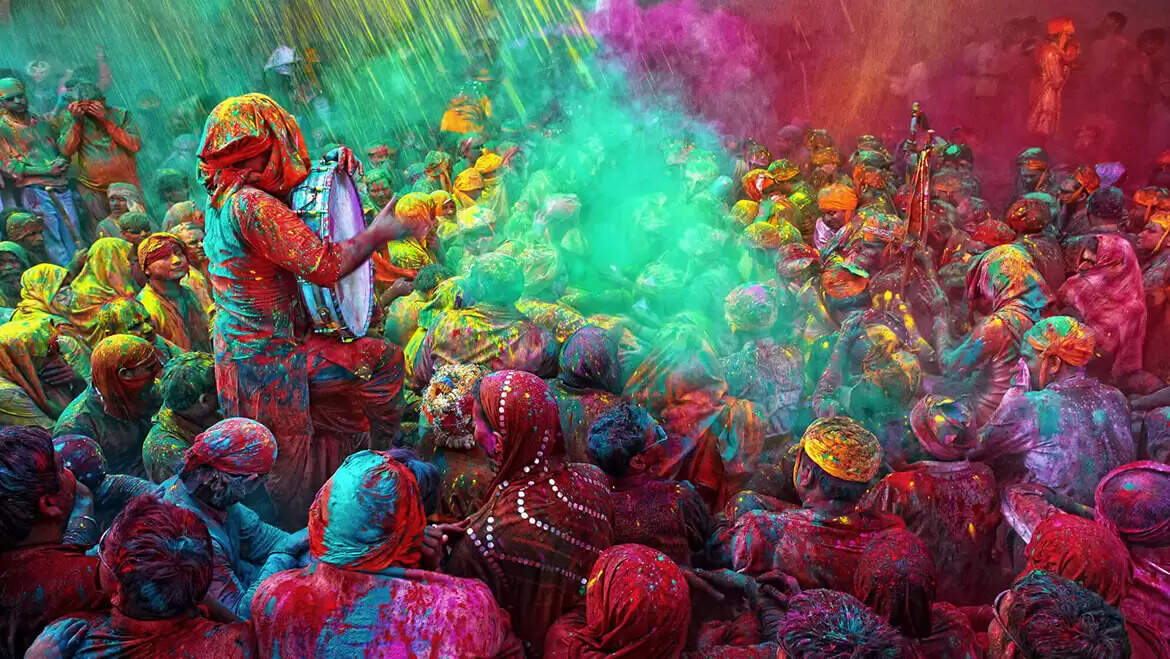Top 7 Cultural Festivals Of India
India is a land of diverse cultures, traditions, and festivals. The country's rich tapestry of cultural diversity is beautifully showcased through its numerous festivals, each celebrated with grandeur and enthusiasm. These festivals not only bring people together but also provide a glimpse into the country's deep-rooted heritage. In this article, we'll explore the top seven cultural festivals that define India's cultural mosaic.
- Diwali (Festival of Lights)
Diwali, also known as Deepavali, is one of the most widely celebrated festivals in India. It usually falls in October or November and marks the triumph of light over darkness. Homes and streets are adorned with oil lamps, candles, and colorful decorations. Families exchange gifts and sweets, and fireworks light up the night sky. The festival is also a time for religious rituals, with prayers offered to the goddess Lakshmi for prosperity and good fortune.
- Holi (Festival of Colors)
Holi is the festival of colors and joy, celebrated with immense enthusiasm throughout India. Usually held in March, this vibrant festival involves people throwing colored powders and water balloons at each other. It symbolizes the victory of good over evil and the arrival of spring. Holi is a time for fun and frolic, as people come together to sing, dance, and enjoy delicious sweets like gujiya and thandai.

- Navaratri and Durga Puja
Navaratri is a nine-night festival dedicated to the goddess Durga. It is celebrated with great fervor in various regions of India. In West Bengal, the festival is known as Durga Puja and involves elaborate processions, traditional dances (known as Dandiya and Garba in other parts of India), and the creation of intricate clay idols of the goddess. The festival signifies the victory of the goddess over the demon Mahishasura.
- Eid-ul-Fitr
Eid-ul-Fitr, also known as Ramzan Eid, is a significant festival for the Muslim community in India. It marks the end of Ramadan, a month of fasting and spiritual reflection. On this day, Muslims gather for special prayers at mosques, exchange gifts, and enjoy festive meals with family and friends. Sweets like sheer khurma and biryani are traditional dishes prepared during Eid celebrations.
- Pongal (Harvest Festival)
Pongal is a four-day harvest festival celebrated in the southern state of Tamil Nadu. It usually falls in January and is dedicated to the sun god, Surya. The festival involves cooking a special dish called 'Pongal,' made from freshly harvested rice, milk, and jaggery. People decorate their homes with colorful kolam (rangoli) designs and offer prayers to thank the gods for a bountiful harvest.
- Ganesh Chaturthi
Ganesh Chaturthi, celebrated predominantly in the state of Maharashtra, is dedicated to Lord Ganesha, the elephant-headed god of wisdom and prosperity. The festival usually occurs in August or September and involves the installation of elaborate clay idols of Lord Ganesha in homes and public pandals (temporary structures). Devotees offer prayers, sing bhajans (devotional songs), and immerse the idols in water bodies, symbolizing the departure of Lord Ganesha.
- Onam
Onam is the harvest festival of Kerala and is celebrated with great zeal and cultural fervor. It falls in August or September and spans ten days of festivities. The highlight of Onam is the grand feast called 'Onam Sadya,' featuring a variety of vegetarian dishes served on a banana leaf. People also participate in traditional dances, such as Kathakali and Pulikali, and decorate their homes with flower carpets known as 'Pookalam.'
Conclusion
India's cultural festivals are a testament to the country's rich heritage and diversity. These celebrations not only offer a glimpse into India's traditions and values but also bring people from diff

